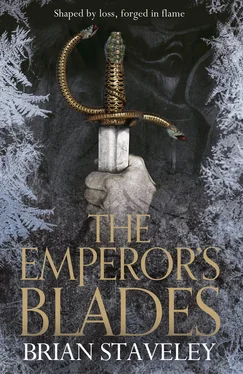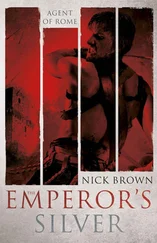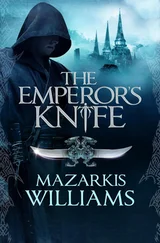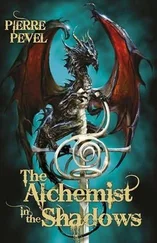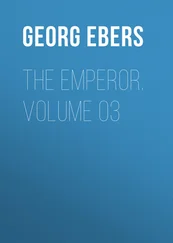Brian Staveley - The Emperor's blades
Здесь есть возможность читать онлайн «Brian Staveley - The Emperor's blades» весь текст электронной книги совершенно бесплатно (целиком полную версию без сокращений). В некоторых случаях можно слушать аудио, скачать через торрент в формате fb2 и присутствует краткое содержание. Год выпуска: 2014, ISBN: 2014, Издательство: Macmillan, Жанр: Фэнтези, на английском языке. Описание произведения, (предисловие) а так же отзывы посетителей доступны на портале библиотеки ЛибКат.
- Название:The Emperor's blades
- Автор:
- Издательство:Macmillan
- Жанр:
- Год:2014
- ISBN:9781466828438
- Рейтинг книги:4 / 5. Голосов: 1
-
Избранное:Добавить в избранное
- Отзывы:
-
Ваша оценка:
- 80
- 1
- 2
- 3
- 4
- 5
The Emperor's blades: краткое содержание, описание и аннотация
Предлагаем к чтению аннотацию, описание, краткое содержание или предисловие (зависит от того, что написал сам автор книги «The Emperor's blades»). Если вы не нашли необходимую информацию о книге — напишите в комментариях, мы постараемся отыскать её.
The Emperor's blades — читать онлайн бесплатно полную книгу (весь текст) целиком
Ниже представлен текст книги, разбитый по страницам. Система сохранения места последней прочитанной страницы, позволяет с удобством читать онлайн бесплатно книгу «The Emperor's blades», без необходимости каждый раз заново искать на чём Вы остановились. Поставьте закладку, и сможете в любой момент перейти на страницу, на которой закончили чтение.
Интервал:
Закладка:
Brian Staveley
The Emperor's Blades
PROLOGUE
Rot. It was the rot, Tan’is reflected as he stared down into his daughter’s eyes, that had taken his child.
Screams and imprecations, pleading and sobbing shivered the air as the long lines of prisoners filled the valley. The scent of blood and urine thickened in the noon heat. Tan’is ignored it all, focusing instead on the face of this daughter of his who knelt, clutching at his knees. Faith was a woman grown now, thirty years and a month. At a casual glance she might have passed as healthy-bright gray eyes, lean shoulders, strong limbs-but the Csestriim no longer bore healthy children, not for centuries.
“Father,” the woman begged, tears streaming down her cheeks.
Those tears, too-a symptom of the rot.
There were other words for it, of course. The children, in their ignorance or innocence, called the affliction age, but in this, as in so much else, they erred. Age was not decrepitude. Tan’is himself was old, hundreds of years old, and yet his sinews remained strong, his mind nimble-if needed, he could run all day, all night, and the better part of the next day. Most of the Csestriim were older still, thousands upon thousands of years, and yet they continued to walk the earth, those who had not fallen in the long wars with the Nevariim. No; time passed, stars swung through their silent arcs, seasons gave way one to the next, and yet none of these, in and of itself, brought harm. It was not age but rot that gnawed at the children, consuming their bowels and brains, sapping strength, eroding what meager intelligence they once possessed. Rot, and then death.
“Father,” Faith pleaded, unable to proceed past that single word.
“Daughter,” Tan’is replied.
“You don’t…,” she gasped, glancing over her shoulder toward the ditch, toward where the doran’se went about their work, steel flashing in the sunlight. “You can’t…”
Tan’is cocked his head to the side. He had tried to understand this daughter of his, tried to understand all the children. Though he was no healer, as a soldier he had learned long ago to tend shattered bones and ruptured skin, to treat the festering flesh that came from a soiled wound or the racking coughs of men too long in the field. And yet this … he could no more comprehend the nature of this decay than he could cure it.
“It has you, daughter. The rot has you.”
He reached down and ran a finger along the creases in Faith’s forehead, sketched the delicate tracery of lines beside her eyes, lifted a slender filament of silver hair from the brown locks. Just a few decades of sun and wind had already begun to roughen her smooth olive skin. He had wondered, when she first burst from between her mother’s thighs, strong-lunged and screaming, if perhaps she might grow up unscathed. The question had intrigued him, and now it was answered.
“It touches you gently,” he pointed out, “but its grip will grow stronger.”
“And so you have to do this ?” she exploded, jerking her head desperately toward the freshly turned earthen ditch. “ This is what it comes to?”
Tan’is shook his head. “It was not my decision. The council voted.”
“Why? Why do you hate us?”
“Hate?” he replied. “That is your word, child, not ours.”
“It’s not just a word. It describes a feeling, a real thing. A truth about the world.”
Tan’is nodded. He had heard such arguments before. Hate, courage, fear. Those who thought the rot an affliction merely of the flesh understood nothing. It corroded the mind as well, rusting the very foundations of thought and reason.
“I grew from your seed,” Faith continued, as though that followed logically from what came before. “You fed me when I was small!”
“This is the way of many creatures: wolves, eagles, horses. When they are young, dependent, all must rely on their progenitors.”
“Wolves, eagles, and horses protect their children!” she protested, weeping openly now, clawing at the backs of his legs. “I’ve seen it! They guard and tend, feed and nurture. They raise their young.” She reached a trembling, imploring hand toward her father’s face. “Why will you not raise us?”
“Wolves,” Tan’is replied, brushing away his daughter’s hand, “raise their young to be wolves. Eagles, eagles. You-,” he continued, frowning once more, “we have raised you, but you are broken. Polluted. Compromised. You can see it for yourself,” he said, gesturing to the hunched, defeated forms that stood waiting at the rim of the pit-hundreds of them, just waiting. “Even without this, you would die on your own, and soon.”
“But we’re people. We are your children. ”
Tan’is shook his head wearily. It was no good reasoning with one whose reason had decayed.
“You can never be what we are,” he said quietly, drawing his knife.
At the sight of the blade, Faith made a strangled sound deep in her throat and flinched away. Tan’is wondered if she would try to run. A few did. They never made it far. This daughter of his, however, did not run. Instead, she balled her hands into white, trembling fists, and then, with an obvious effort of will, straightened from her knees. Standing, she was able to look him directly in the eye, and though tears plastered her hair to her cheeks, she no longer wept. For once, however briefly, the disfiguring terror had left her. She looked almost whole, hale.
“And you cannot love us for what we are?” she asked, words slow, steady for the first time. “Even polluted, even broken? Even rotten, you cannot love us?”
“Love,” Tan’is repeated, tasting the strange syllable, revolving it on his tongue as he drove the knife in and up, past the muscle, past the ribs, into her galloping heart, “like hate-it is your word, daughter, not ours.”
1
The sun hung just over the peaks, a silent, furious ember drenching the granite cliffs in a bloody red, when Kaden found the shattered carcass of the goat.
He’d been dogging the creature over the tortuous mountain trails for hours, scanning for track where the ground was soft enough, making guesses when he came to bare rock, doubling back when he guessed wrong. It was slow work and tedious, the kind of task the older monks delighted in assigning to their pupils. As the sun sank and the eastern sky purpled to a vicious bruise, he started to wonder if he would be spending the night in the high peaks with only his roughspun robe for comfort. Spring had arrived weeks earlier according to the Annurian calendar, but the monks didn’t pay any heed to the calendar and neither did the weather, which remained hard and grudging. Scraps of dirty snow lingered in the long shadows, cold seeped from the stones, and the needles of the few gnarled junipers were still more gray than green.
“Come on, you old bastard,” he muttered, checking another track. “You don’t want to sleep out here any more than I do.”
The mountains comprised a maze of cuts and canyons, washed-out gullies and rubble-strewn ledges. Kaden had already crossed three streams gorged with snowmelt, frothing at the hard walls that hemmed them in, and his robe was damp with spray. It would freeze when the sun dropped. How the goat had made its way past the rushing water, he had no idea.
“If you drag me around these peaks much longer…,” he began, but the words died on his lips as he spotted his quarry at last-thirty paces distant, wedged in a narrow defile, only the hindquarters visible.
Although he couldn’t get a good look at the thing-it seemed to have trapped itself between a large boulder and the canyon wall-he could tell at once that something was wrong. The creature was still, too still, and there was an unnaturalness to the angle of the haunches, the stiffness in the legs.
Читать дальшеИнтервал:
Закладка:
Похожие книги на «The Emperor's blades»
Представляем Вашему вниманию похожие книги на «The Emperor's blades» списком для выбора. Мы отобрали схожую по названию и смыслу литературу в надежде предоставить читателям больше вариантов отыскать новые, интересные, ещё непрочитанные произведения.
Обсуждение, отзывы о книге «The Emperor's blades» и просто собственные мнения читателей. Оставьте ваши комментарии, напишите, что Вы думаете о произведении, его смысле или главных героях. Укажите что конкретно понравилось, а что нет, и почему Вы так считаете.
